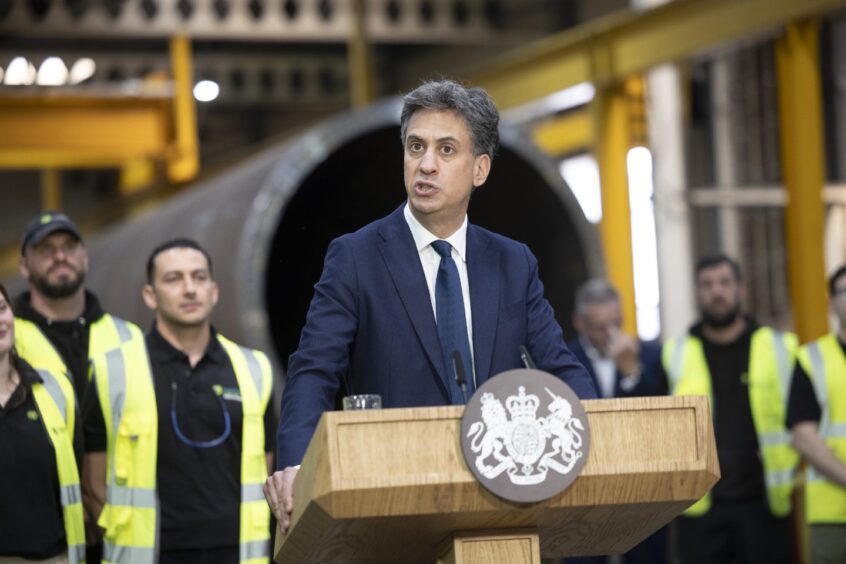
The Labour Party’s large majority in the 2024 general election is providing clarity to the energy sector on several fronts and accelerating the risks and opportunities for the supply chain, with the need to pivot and reposition business models to serve new and emerging markets.
The future of energy was a key focus of the election campaign. Labour’s manifesto called for Britain to become a “clean energy superpower” and outlined a more accelerated shift toward renewable energy.
With the new government having the mandate to implement its policies they have wasted no time in reaffirming their policies and priorities. Businesses now have to be quick and agile to protect themselves and to be in a position to capitalise from the opportunities that will emerge from the changes.
The rapid announcement of an end to restrictions on onshore windfarms after just three days in power, the reaffirmation of “no new drilling” and the continuing debate about oil and gas licensing, are indications of Labour’s intention to advance the pace of change. The King’s Speech announced 39 bills – far more than previous governments.
Opportunities for businesses
Businesses like stability, but at the moment for the North Sea energy industry, there is the sense of a journey although the final destination is not quite clear.
The opportunities arising from the transition towards green energy sources and renewables is a significant opportunity for many in the supply chain, although there is a real risk of casualties along the way. Remaining relevant is essential and those companies that can adapt and accelerate the transition of their core skills, such as engineering, to service the growth areas with green energy or more established markets such as decommissioning are more likely to sustain themselves in the longer term.
The immediate risk to businesses within our local supply chain is mitigated in part where they have a presence or can establish themselves internationally in key territories where oil and gas has a longer time horizon.
At Azets, I am guiding many clients as they expand overseas, with our international network advising on local regulations and taxes.
What will be the impact for North East businesses?
In the run-up to the election, Labour was clear about its commitment to raise the energy profits levy, or “windfall tax” on oil and gas companies from 75% to 78% through to 2029, the removal of investment allowances and a shutdown on new exploration licences. They also announced plans to base Great British Energy in Scotland, and Aberdeen has made a compelling and logical case to be the home for that new publicly-owned entity.
Being from the North East, I am passionate about the future and security of energy businesses and jobs.
Over the last few months, I have spoken to countless clients and contacts who despite recognising some opportunities are extremely nervous about what a change of government might mean for them and their business. The North-east Quarterly Economic Survey (QES), launched in July by Aberdeen and Grampian Chamber of Commerce, in partnership with law firm Gilson Gray, benchmarks key indicators in the region’s economy against the wider UK.
It shows that 48% of businesses in the region are concerned about high taxes compared to 38% in the rest of the UK, highlighting Aberdeen’s countercyclical economy.
Change requires investment
Under the backdrop of the highest tax burden in 70 years, the new government needs to get straight to work in providing confidence to businesses if it is to deliver the economic growth needed to finance its manifesto promises and tackle the challenge of the rising national debt.
Labour’s commitment not to increase income tax, national insurance, VAT or corporate tax rates, leaves limited meaningful tax levers to pull. Hence the need for the delivery of economic growth to increase the tax revenues flowing to the Treasury to fund the “change” promised through the election.
Labour has pledged to generate additional tax revenue from closing carried interest “loopholes”, abolishing the non-dom regime “once and for all” and applying VAT on private school fees; as well as reducing the tax gap through tackling tax avoidance with additional funding made available for HMRC. However, in the overall scheme of things these measures will deliver relatively small additional tax revenues, with the funds already earmarked.
The tax-raising proposals in Labour’s manifesto are unlikely to raise more than 2% of the total current UK tax take; and with the requirement to have the national debt falling as a percentage of GDP, something will have to give.
History would suggest some bad news in the first Budget announcement after the general election – private equity executives, non-doms and parents with children in private schools already know what’s coming; but higher earners, savers and pensioners will be watching carefully.
Labour has been vague about capital gains tax rates and has been silent on changes to pensions – both for those benefitting from tax relief on pension contributions and retirees drawing a pension income.
Will there be a rise in inheritance tax (IHT)? IHT receipts are at record levels and there is speculation that certain reliefs may be restricted, such as let farmland. Will we see pensions treated as part of an estate going forward? Only time will tell.
Investors will be paying close attention to the first Budget, with a current broad range of speculation about dividend tax rates, income tax, national insurance and personal tax thresholds.
While there is a perceived urgency to balance the country’s finances among many, Labour will still have to proceed with caution.
While change can create uncertainty, it can also bring opportunity.
Recommended for you

 © Supplied by Azets
© Supplied by Azets